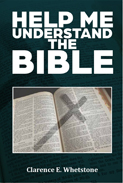
 |
Author Whetstone brings to bear his diligent study of religious scripture in this fascinating treatise regarding how the Holy Bible was composed. He reminds readers that the Hebrew language and the people’s worldviews were distinct not only from our modern trends and terms but also from the Greeks' logical, rational expression and understanding. Whetstone recommends that readers begin with the four gospels before the rest of the New Testament, skipping Revelation initially and then taking on the Old Testament. The latter is far more symbolic in its Hebraic basis than the New Testament, in which some Greek modalities were already seeping in. Hebrews made “word pictures,” accessing a smaller vocabulary than the later Greek writers, which can perplex modern readers. In general, it is essential to remember that the Holy Bible is not a scientific work but a book about God—and humans’ relationship with him—and should be cherished as such.
Whetstone grew up in a Christian atmosphere with his father being a pastor and now devotes time to Sunday school leadership and occasional preaching. A language arts teacher, he begins each chapter with a brief, lively conversation between two characters, Jody and Phil (possibly based on students he has known), trying to grasp biblical truths. He uses apt, educated, and interesting analyses throughout, beginning with a portrait of the woman at the well. In her culture, she would have been seen as inferior, despised, and an enemy of Jesus. Yet Jesus spoke to her kindly and freely. This and other examples emphasize Whetstone’s dynamic theme: that the Bible centers on the life of Jesus, this factor taking precedence over specific, sometimes puzzling verbiage. His book could be utilized among dedicated biblical study groups and individuals like himself, who sincerely wish to understand and embrace Christian scripture.
RECOMMENDED by the US Review